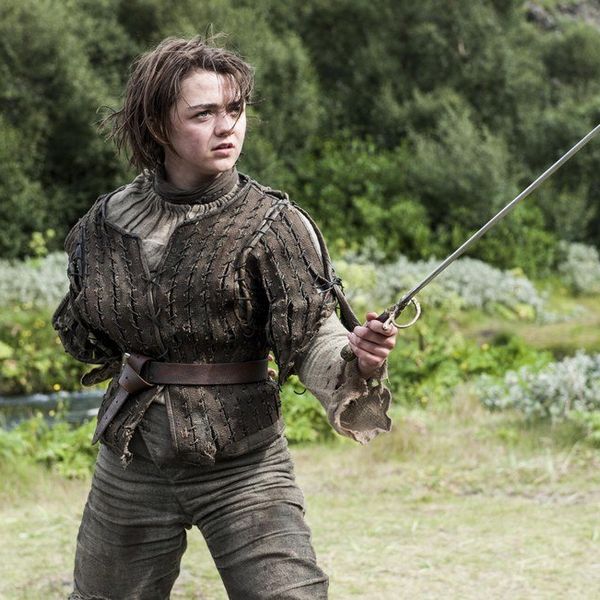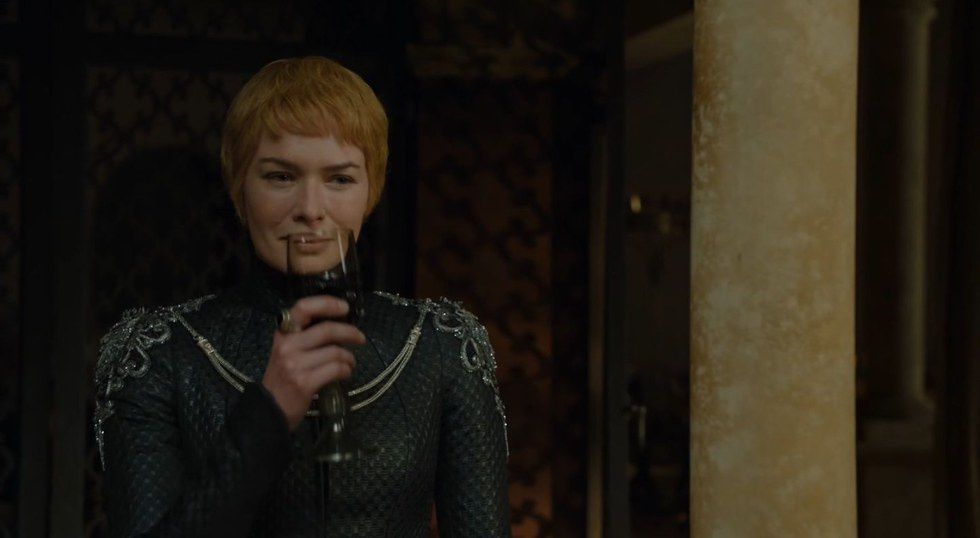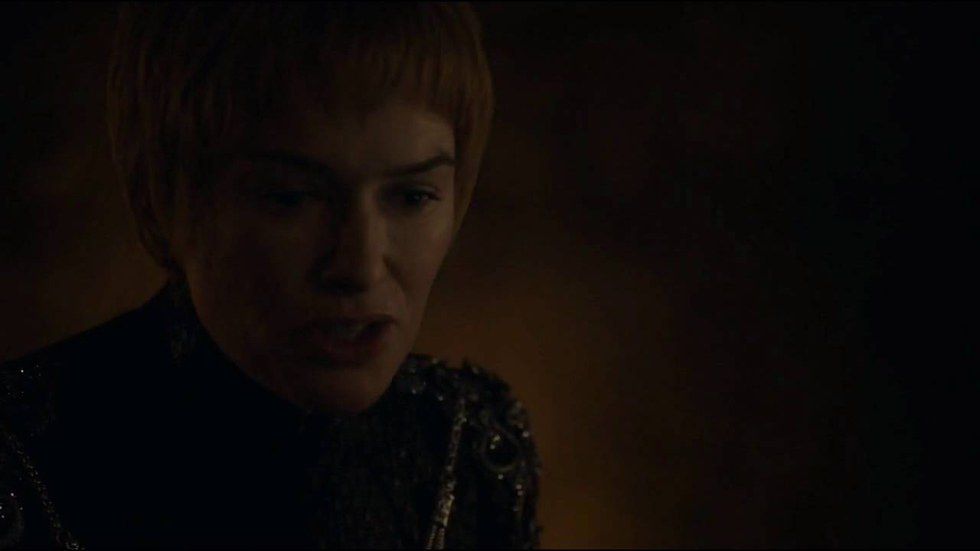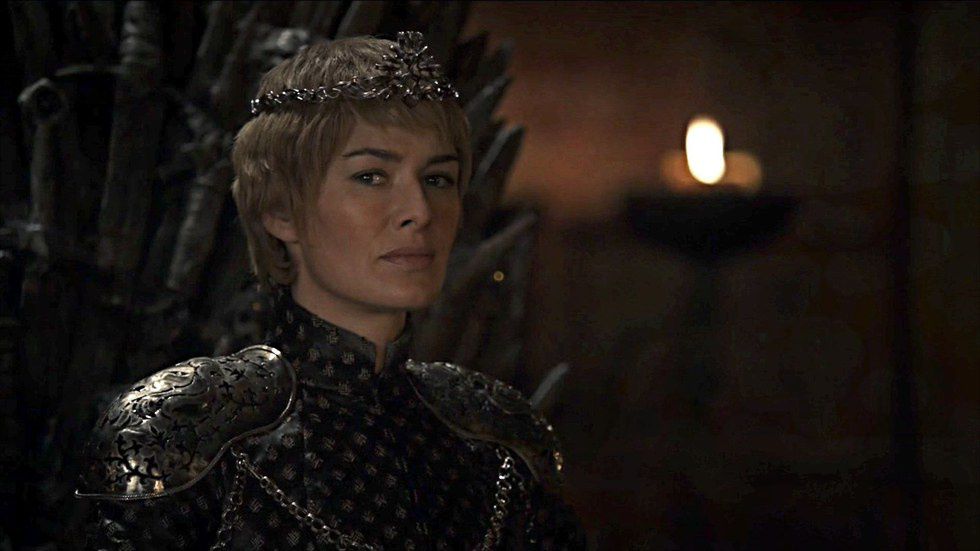Last week’s fiery episode of "Game of Thrones" left viewers with a wide array of reactions. Some were saddened by the deaths of Loras and Margaery Tyrell, the latter whom could have survived had she been on her own. Some were elated by the R + L = J reveal (isn’t it fantastic when your fan theory becomes fan reality?) Others were mostly thankful that oh my god Daenerys finally got on a damn boat, and is finally going to fight for her right to become Westeros’ first Queen Regnant…
Well. Maybe not the first.
Cersei Lannister. George R. R. Martin’s answer to the longtime fantasy trope of the Evil Queen, and arguably HBO’s answer to Walter White. She is a character who at first glance seems to be just another Morgan le Fey expy—a conniving and cunning queen hellbent on attaining power—but she is very much not. Tywin Lannister tells her that she is not nearly as smart as she thinks she is, and he’s not completely wrong. She plays the Game, and she often plays it well, but often underestimates the cost that her decisions will have—be it the death of Ned Stark, hoisting her own petard by giving the Faith military power, or recently, the suicide of her youngest child, Tommen.
I find these actions heavily indicative of who Cersei is, particularly her characterization within the show. In both the novels and the television show, Cersei is rash and self-serving, but as the show assigned many of her crueler acts to Joffrey (such as the killing of Robert Baratheon’s bastards), a closer look at her actions show us that Cersei’s motives are often more reactionary than intentionally antagonistic, though she certainly has her moments. Her murdering of her husband and Ned Stark arose from her fear of her incestuous relationship with Jaime being discovered and thus losing her position and potentially her life. Her employing of the Faith arose from a perceived lack of respect from her peers and anxieties surrounding Margaery Tyrell’s influence over her son. And of course, the bombing of the Sept arose from Cersei’s unwillingness to be shamed and controlled by the Faith yet again.
Cersei doesn’t strive for power for the sake of it. She strives for the ability to be in control. She craves to govern herself in a world where she has been given absolutely no opportunity to do so. Perhaps this is why despite her acts of incest, murder and villainy, many viewers found themselves rooting for Cersei when she wiped out her enemies in a single swipe. She is a woman who was used as a pawn by her father to strengthen the alliance between the Houses Baratheon and Lannister, who was abused and ignored by her husband, who always had to exercise power through a medium rather than directly herself. Her actions are constantly defined by her fear of powerlessness in the face of the violent and patriarchal setting of Westeros.
“Confess,” Cersei mocks Sister Unella smugly after waterboarding her with wine. “Confess it felt good beating me, starving me, frightening me, humiliating me. You didn’t do it because you cared about my atonement. You did it because it felt good.” Cersei pauses and then admits, “I understand. I do things because they feel good too.”
Both Cersei’s words and her mocking sarcasm show a relishing that comes with finally taking back a lost sense of security, authority and pride. Interestingly, they also reflect Cersei’s general rule of thumb - if the world is cruel, be twice as awful. If the world takes away your pride, take away their life. As she told Ned Stark, "When you play the game of thrones, you either win or you die."
But like the dozens of outsiders caught in the Sept’s collateral damage, Cersei’s violent self-preservation often comes at a great cost, which results in her making more decisions that eventually spiral out of hand. And yet ironically, Tommen’s suicide doesn’t lead Cersei into another flurry of paranoia and fear. Instead, she comes across as oddly relieved.
Consider Cersei’s primary anxiety in the past few seasons—the prophecy of her children’s deaths. As many “Game of Thrones” fans will tell you, Cersei’s primary humanizing trait is her fierce love for her children. But while I do believe that Cersei’s love for her sons and daughter is genuine, much of her protectiveness over her children is rooted in the same ideology through which Cersei justifies her incestuous relationship with Jaime—they are extensions of her. She rules and arguably live through her sons’ kingly authority. Her battle with Margaery for influence over Tommen isn’t just about losing her position, but losing a piece of herself. And regarding the prophecy itself, Cersei’s obsession with keeping them alive is just as much about retaining power over her own life as it is about concern over their well-being.
But now, the prophecy has come true. She has lost all her children. But that expression of relief isn’t just resignation. It’s a feeling of freedom. For the first time, Cersei is free of anxieties surrounding her children’s death. Cersei is free of all her known enemies. Cersei no longer rules through a husband or son, but by herself. Cersei has more control, more power, and more security than she has ever had before.
“Game of Thrones” costume designer Michele Clapton noted that she wanted to invoke a sense of deadness and sobriety in Cersei’s new battle dress: “Yes, it is for mourning her children, her father . . . but it’s more than that. To me, it represents a deadness inside her…. She is reborn.”
This is a new Cersei. This is a Cersei without physical and emotional restraints. And I am both excited and terrified to see where the show takes her next.
























